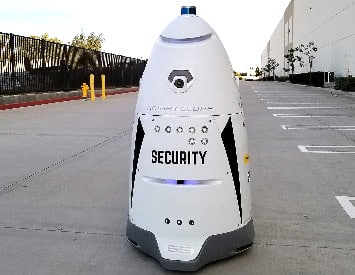The buzz around automation engineers is hard to ignore in today’s ever-evolving job market. These professionals play a crucial role in developing, testing, and implementing technologies that automate business, development, and operational processes—a necessity in our rapidly advancing world where efficiencies and safety are critical.
Automation’s Influence on Employment
The surge of artificial intelligence (AI) and automation technologies is reshaping our approach to work, lifestyle, and engagement with the world. While these innovations promise enhanced productivity, cost reductions, and increased efficiencies, they also present substantial challenges to the labor market.
In Australia and various global regions, the imprint of AI and automation on employment dynamics has been profound, and this influence is anticipated to persist in the years ahead. A recent report from the Committee for Economic Development of Australia showed that nearly 40% of Australian jobs face the risk of automation within the next 10 to 15 years. This equates to the potential loss or significant alteration of over 5 million jobs, with certain industries more vulnerable than others.
The manufacturing sector is one of the most impacted by AI and automation. Robotics and machine learning, integral components of automation, are progressively supplanting human workers in manufacturing plants, resulting in a dwindling pool of job opportunities. The Australian Bureau of Statistics underscored this trend, reporting a loss of over 80,000 jobs in the manufacturing industry between 2011 and 2019, with automation cited as a primary factor.
Irrespective of individual sentiments toward automation, it is an irreversible force, firmly embedded in our professional landscape. Companies actively adopt automation technologies to streamline IT, business, development, and service processes. With the escalating integration of automation, organizations spanning every industry are actively seeking automation engineers. These professionals are pivotal in facilitating, managing, and overseeing enterprise automation, underscoring their growing importance in the evolving job market.

The Automation Engineer Role
While automation has been a cornerstone in manufacturing, it’s relatively new to other sectors like business, healthcare, and finance. Automation engineers, often unsung heroes, focus on service automation, quality assurance (QA) testing, and solving real-world issues.
Automation engineers are the architects behind the scenes, aiming to eliminate defects, errors, and inefficiencies in product development and business processes. They dive into the nitty-gritty of software, hardware, and even automated chatbots, ensuring everything runs smoothly.
What It Takes to Be an Automation Engineer
Being an automation engineer isn’t just about coding. It’s a blend of technical and soft skills. Programming languages like C#, SQL, and Java are essential, as are communication and leadership skills. Understanding systems, networks, and hardware is crucial, coupled with experience in analytics and machine learning.
Common Skills Needed
• Automation and robotics
• Artificial intelligence and machine learning
• Programming and coding
• Project management
• Agile methodologies
• Analytical and problem-solving skills
• Communication and leadership skills
• Engineering or related field experience
Charting Your Path
A solid educational foundation is key to becoming an automation engineer. Consider enrolling in relevant courses that cover robotics, statistics, AI, and control systems. The Engineering Institute of Technology (EIT) offers specialized programs tailored for aspiring engineers and those looking to enhance their skills.
EIT Courses for Aspiring Automation Engineers
52892WA Advanced Diploma of Electrical and Instrumentation (E&I) Engineering for Oil and Gas Facilities
This advanced diploma is ideal for those looking to understand automation in the context of oil and gas.

Master of Engineering (Industrial Automation)
Whether you choose the online or on-campus course, EIT’s Master of Engineering (Industrial Automation) is tailored for professionals aiming to deepen their knowledge in industrial automation.
52859WA Graduate Certificate in Renewable Energy Technologies
This graduate certificate explores automation applications in the renewable energy sector.
If you seek to advance your career, EIT’s courses provide comprehensive content in the dynamic field of automation engineering.
The Future is Happening Now
Despite concerns about job losses, the rise of AI and automation brings new industries and job roles. Skilled workers in data science, engineering, and AI specialization are in high demand, presenting exciting prospects for those ready to embrace the future.
The impact of AI and automation on the job market is undeniable, but with a proactive approach, we can navigate these changes successfully. Educational institutions such as EIT, policymakers, and business leaders play a pivotal role in ensuring that the benefits of automation are shared fairly, paving the way for a thriving world in a technology-driven era.
References:
The local impacts of automation in Australia
What is an automation engineer? A growing role to address IT automation
The Impact of AI and Automation on Australia’s Job Market: An In-Depth Analysis


